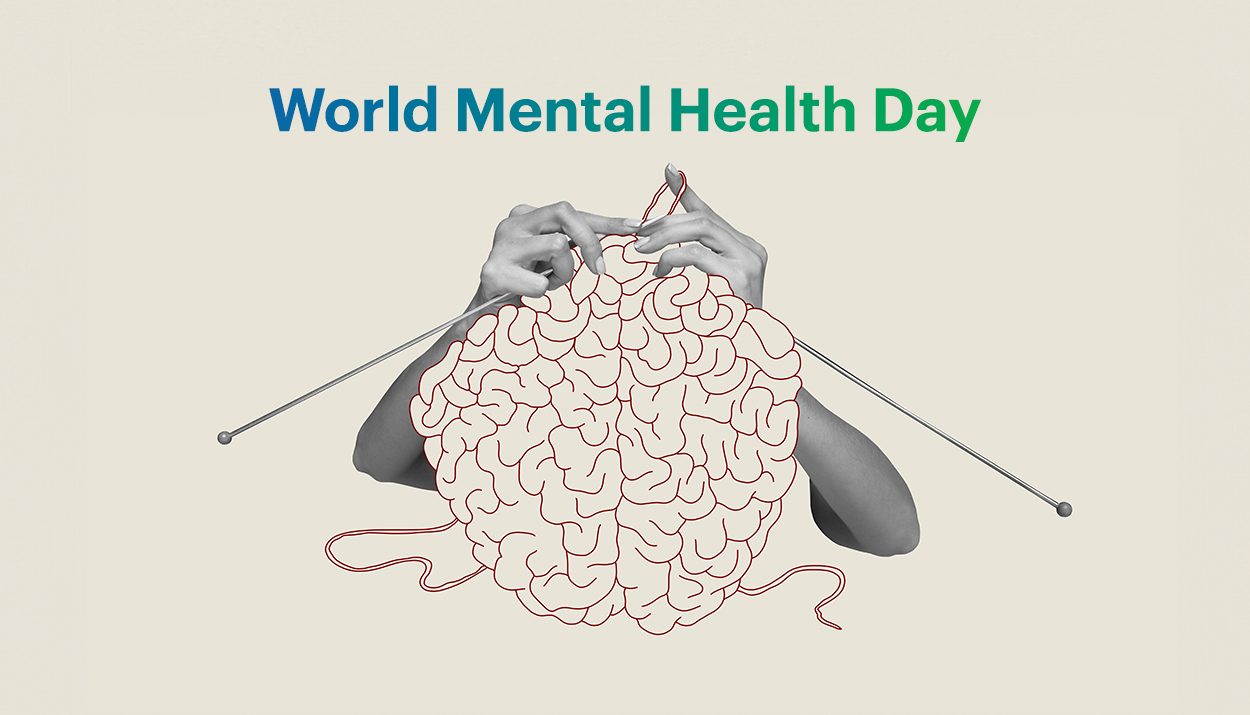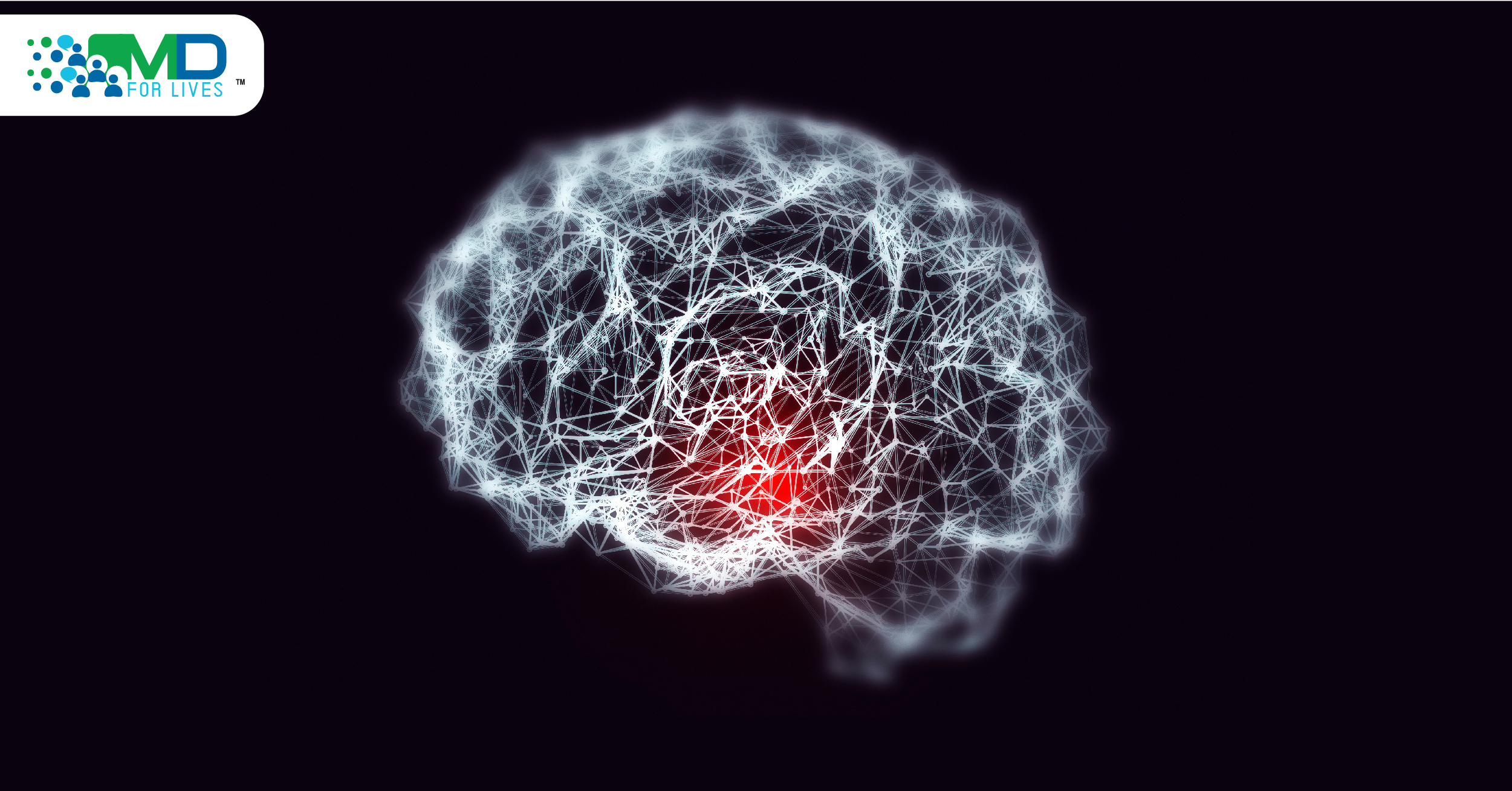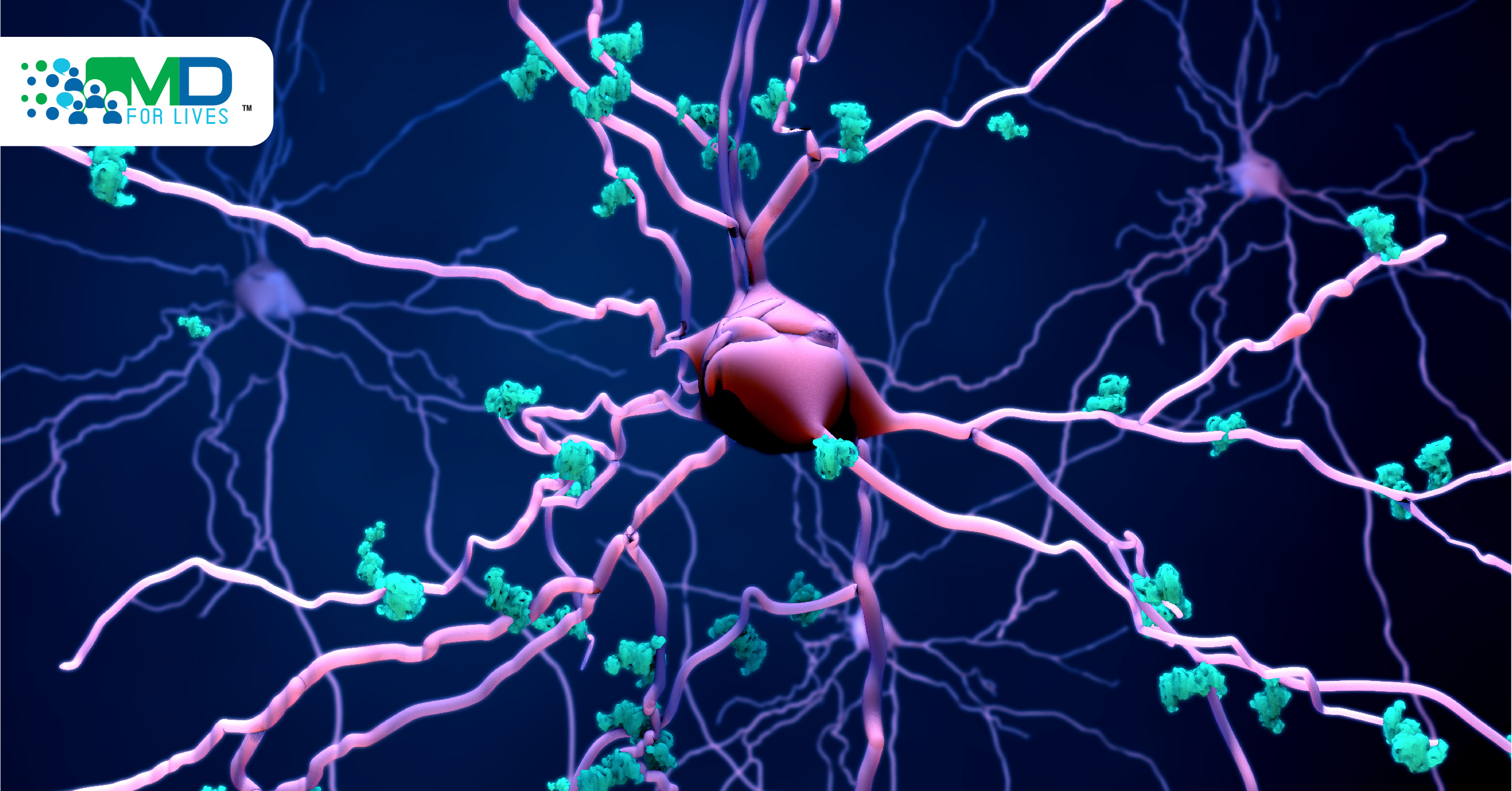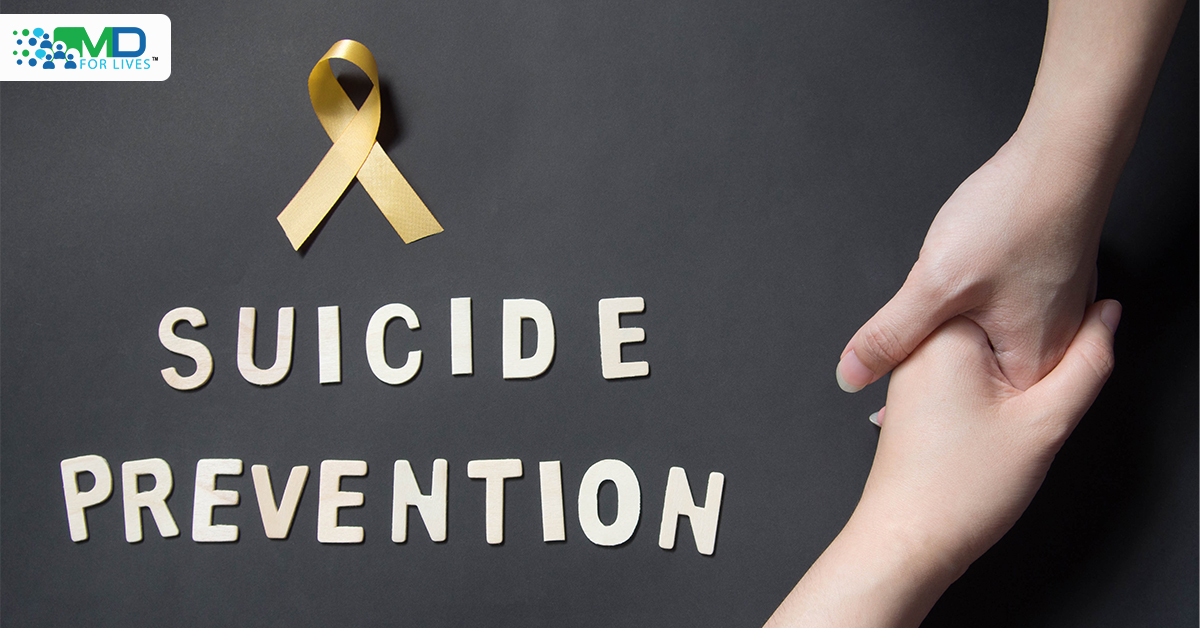For the longest time, mental health treatment has felt a bit like playing the same old song on repeat – therapy, medication, and maybe some lifestyle changes. While these methods have helped many, they’ve been less than enough for countless others, leaving a sense of frustration and hopelessness. But recently, things have begun to shift in an exciting new direction.
As World Mental Health Day approaches, there’s no better time to spotlight how we’re stepping into an era where mental health care is no longer confined to traditional approaches. Groundbreaking drugs for mental health, like psychedelics and ketamine, are moving from the fringes into the mainstream. These drugs are delivering an impressive 70% success rate (on average) in patients battling depression, anxiety, and other complex mental health disorders.
Eager to learn more about these innovative drugs for mental health? Please stick with us through this blog, where we go beyond simply spreading awareness. We’ll explore psychedelics and ketamine that are not just making headlines but genuinely transforming lives!
WHAT CONTRIBUTED TO THE RISE IN NEXT-GEN DRUGS FOR MENTAL HEALTH
The emergence of next-generation drugs for mental health, like psychedelics and ketamine, is driven by several factors:
- Limitations of Traditional Treatments: Conventional treatments for mental health like talk therapy and antidepressant medications, while effective for some, fail to work for up to 30-40% of patients with conditions like treatment-resistant depression. This high rate of non-responsiveness has spurred the need for alternatives.
- Scientific Breakthroughs: Advances in neuroscience have provided a deeper understanding of how the brain functions and how certain mental health conditions can be targeted more effectively.Example: Psychedelic drugs for mental health promote neural plasticity. At the same time, ketamine rapidly alleviates depression symptoms by targeting glutamate receptors, providing faster relief than traditional antidepressants.
- FDA Approvals and Clinical Research: The U.S. Food and Drug Administration (FDA) has granted breakthrough therapy status to psychedelics for mental health, like psilocybin for depression and MDMA for PTSD. Additionally, ketamine for mental health has already been approved for treating depression.The growing body of clinical research supports the safety and efficacy of these drugs for mental health, making them more accessible to patients.
- Changing Attitudes Toward Mental Health: Public perception of mental health has evolved, with a growing recognition that mental health disorders require as much attention and innovation as physical illnesses. This shift in societal attitudes has led to greater openness to alternative treatments for mental health and a willingness to explore unconventional options.
- Research on Trauma and PTSD: Conditions such as post-traumatic stress disorder (PTSD), which are notoriously hard to treat with traditional methods, have shown promise with psychedelic-assisted therapy and drugs for mental health. MDMA-assisted psychotherapy, for example, has demonstrated significant success in treating PTSD in clinical trials.
- Mental Health Advocacy: Increased advocacy and funding for mental health research have driven efforts to explore new treatment avenues. World Mental Health Day, for instance, highlights the need for innovation and encourages research into groundbreaking therapies.
PSYCHEDELICS: CHANGING THE BRAIN, CHANGING LIVES
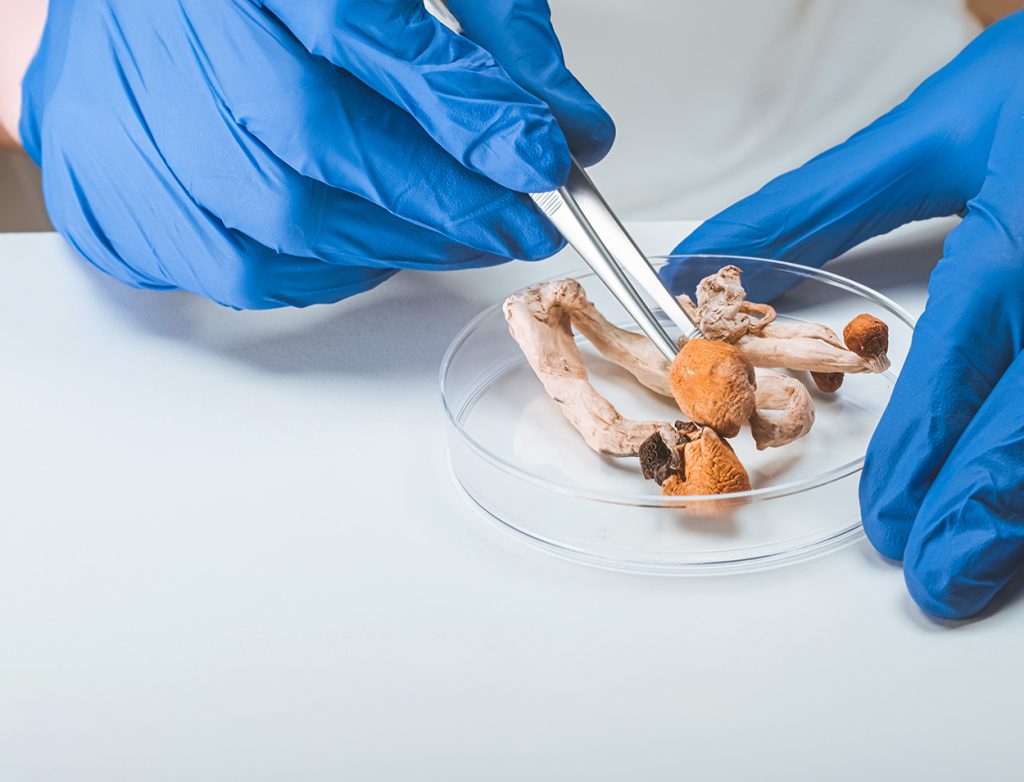
Psychedelics, which utilizes substances like psilocybin (the active compound in “magic mushrooms”) and MDMA, is one of the most talked-about drugs for mental health in modern psychiatry. Unlike traditional medications, which often take weeks or months to show results, psychedelics for mental health have demonstrated the ability to bring about rapid and profound shifts in mood and perception.
These substances enhance neural plasticity, allowing the brain to form new connections and break old thought patterns. With the help of psychedelics, patients often report breakthroughs in understanding and coping with their conditions, particularly in cases of treatment-resistant depression and PTSD.
In clinical trials, patients who took psychedelics for mental health showed a 60-70% improvement in symptoms. In fact, many experience long-lasting effects months after treatment!
This is a game-changer for psychiatry, offering an alternative for those who’ve struggled for years with conventional methods.
KETAMINE: A RAPID RELIEF FOR DEPRESSION
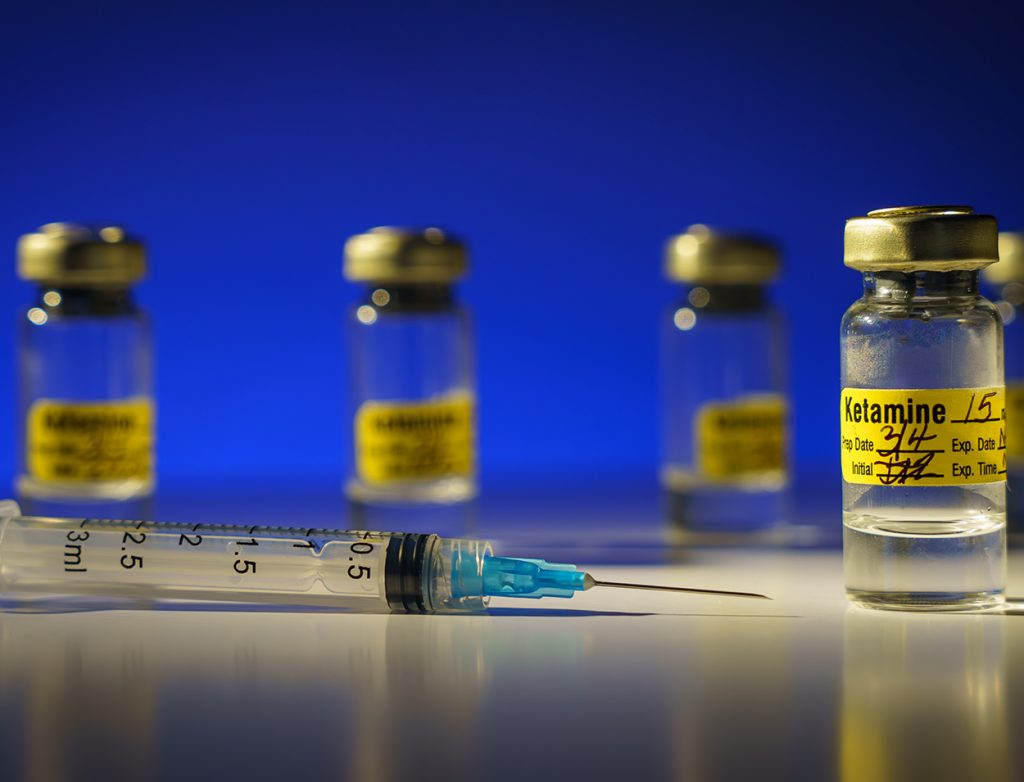
Ketamine, an anesthetic traditionally used in surgery, has gained attention in recent years for its effectiveness in treating severe depression.
Administered either through IV infusions or as a nasal spray, ketamine for mental health works differently from standard antidepressants. Instead of targeting serotonin or dopamine levels, ketamine influences ‘glutamate’ – a neurotransmitter responsible for mood regulation.
The results? Rapid relief from depressive symptoms, often within hours or days! Ketamine for mental health is especially effective for patients with suicidal ideation, providing them with immediate relief.
Please note: Studies have shown that 70-80% of patients who take ketamine drugs for mental health experience significant improvement. This makes it a vital tool for psychiatrists treating severe depression.
IS 70% SUCCESS RATE A BIG DEAL? OF COURSE!
Achieving an average of 70% success rate using drugs for mental health is remarkable!
Conventional antidepressants and therapies typically see success rates of around 50-60%. However, for those with treatment-resistant conditions, the numbers are often much lower. The ability of psychedelics and ketamine to offer patients a higher chance of recovery is a significant advancement in psychiatry.
This success rate is especially significant for individuals who have spent years cycling through various treatments for mental health without finding lasting relief. The rapid-acting nature of these drugs allow patients to see life-changing improvements in weeks, avoiding lengthy, uncertain treatment plans.
A NEW DAWN IN MENTAL HEALTH TREATMENT
The rise of psychedelics and ketamine drugs for mental health represents a seismic shift in how complex mental illnesses like depression, anxiety disorder, and PTSD are treated.
Traditional therapies have long been the cornerstone of mental health care, but for many, they fall short. Enter these next-generation drugs, born from groundbreaking scientific research, FDA-backed clinical trials, and growing societal demand for more effective options.
As we celebrate World Mental Health Day, we acknowledge the importance of awareness and the incredible strides being made in developing drugs for mental health. We are witnessing the dawn of a new era in which mental health care is evolving beyond traditional confines, bringing transformative solutions that are already changing lives across the globe.
With more research and broader accessibility, the future of mental health treatment is brighter than ever. To contribute to healthcare research, join MDForLives and take paid medical surveys.
REFERENCES:
- Ketamine for the Treatment of Mental Health and Substance Use Disorders: Comprehensive Systematic Review
www.ncbi.nlm.nih.gov - How Psychedelic Drugs May Help with Depression
www.nih.gov - Evidence Brief: Psychedelic Medications for Mental Health and Substance Use Disorders
www.ncbi.nlm.nih.gov - The Therapeutic Effects of Ketamine in Mental Health Disorders: A Narrative Review
www.ncbi.nlm.nih.gov

MDForLives is a global healthcare intelligence platform where real-world perspectives are transformed into validated insights. We bring together diverse healthcare experiences to discover, share, and shape the future of healthcare through data-backed understanding.

